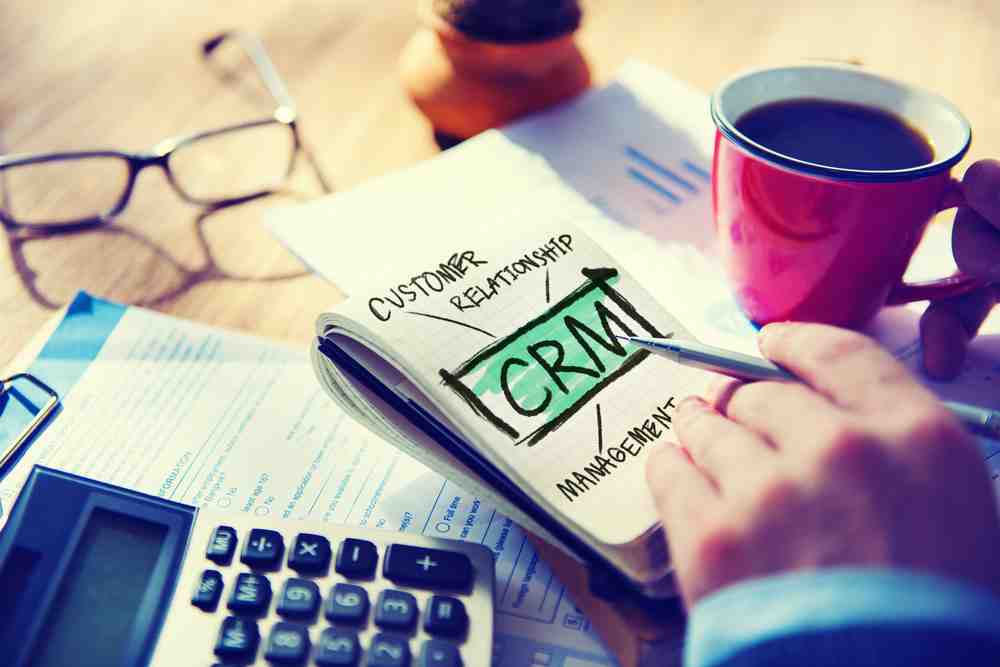Implementing CRM Solutions to Match Business Goals

Customer Relationship Management (CRM) is a vital aspect of any successful business. It involves managing interactions with customers, analyzing data, and improving customer satisfaction. In today’s competitive market, implementing CRM solutions that align with business goals is crucial for long-term success. This article will explore the benefits of CRM, key considerations when choosing a CRM solution, and provide examples of successful CRM implementations.
The Benefits of CRM
Implementing a CRM solution offers numerous benefits for businesses of all sizes. Here are some key advantages:
- Improved Customer Relationships: CRM allows businesses to better understand their customers, their preferences, and their needs. By centralizing customer data, businesses can provide personalized experiences and build stronger relationships.
- Increased Efficiency: CRM streamlines various business processes, such as sales, marketing, and customer service. It eliminates manual tasks, automates workflows, and improves overall efficiency.
- Better Sales Performance: CRM provides sales teams with valuable insights and analytics. It helps identify potential leads, track sales activities, and forecast revenue. This leads to improved sales performance and increased revenue.
- Enhanced Customer Service: CRM enables businesses to provide exceptional customer service. It allows customer service representatives to access customer information quickly, resolve issues promptly, and provide personalized support.
- Data-Driven Decision Making: CRM provides businesses with valuable data and analytics. By analyzing customer data, businesses can make informed decisions, identify trends, and develop effective strategies.
Key Considerations when Choosing a CRM Solution
Choosing the right CRM solution is crucial for successful implementation. Here are some key considerations to keep in mind:
1. Define Your Business Goals
Before selecting a CRM solution, it is essential to define your business goals. Determine what you want to achieve with CRM, whether it’s improving customer satisfaction, increasing sales, or streamlining processes. Having clear goals will help you choose a CRM solution that aligns with your objectives.
2. Scalability and Customization
Consider the scalability and customization options of the CRM solution. As your business grows, your CRM needs may change. Ensure that the CRM solution can accommodate your future requirements and can be customized to fit your specific business processes.
3. Integration Capabilities
Check the integration capabilities of the CRM solution. It should seamlessly integrate with your existing systems, such as email marketing tools, e-commerce platforms, and customer support software. Integration ensures smooth data flow and eliminates manual data entry.
4. User-Friendliness
Choose a CRM solution that is user-friendly and easy to navigate. A complex CRM system may lead to resistance from employees and hinder adoption. Look for a solution with an intuitive interface and comprehensive training and support options.
5. Mobile Accessibility
In today’s mobile-driven world, having a CRM solution with mobile accessibility is crucial. It allows sales representatives and customer service agents to access customer information on the go, improving productivity and responsiveness.
6. Data Security
Data security is of utmost importance when implementing a CRM solution. Ensure that the CRM provider has robust security measures in place to protect sensitive customer data. Look for features like data encryption, access controls, and regular data backups.
Successful CRM Implementations
Several businesses have successfully implemented CRM solutions to match their business goals. Let’s explore a few examples:
1. Amazon
Amazon, the e-commerce giant, utilizes CRM to provide personalized recommendations to its customers. By analyzing customer data, purchase history, and browsing behavior, Amazon suggests relevant products, improving the overall customer experience and driving sales.
2. Salesforce
Salesforce, a leading CRM provider, uses its own CRM solution to manage customer relationships. Salesforce’s CRM platform allows businesses to track leads, manage sales pipelines, and provide exceptional customer service. The company’s success is a testament to the effectiveness of its CRM solution.
3. Zappos
Zappos, an online shoe and clothing retailer, is known for its exceptional customer service. Zappos utilizes CRM to provide personalized support and build strong customer relationships. Their CRM system allows customer service representatives to access customer information quickly, resulting in efficient issue resolution.
Implementing CRM solutions that align with business goals is essential for long-term success. CRM offers numerous benefits, including improved customer relationships, increased efficiency, better sales performance, enhanced customer service, and data-driven decision making. When choosing a CRM solution, consider factors such as scalability, customization, integration capabilities, user-friendliness, mobile accessibility, and data security. Successful CRM implementations by companies like Amazon, Salesforce, and Zappos demonstrate the effectiveness of CRM in achieving business goals. By implementing the right CRM solution, businesses can gain a competitive edge, improve customer satisfaction, and drive growth.
For small businesses, agency owners, and marketers looking for an all-in-one sales and marketing platform, consider exploring https://SaasExpert.ca. SaasExpert.ca offers a comprehensive CRM solution that can help businesses streamline their sales and marketing processes, improve customer relationships, and achieve their business goals.
Learn more about “Measuring the Impact of CRM Modules on Business Performance” right here.
Frequently asked questions about Implementing CRM Solutions to Match Business Goals.

Question 1: How Do I Align My CRM Solution with My Business Goals? 🤔
Ah, the alignment question—a cornerstone of CRM success! 🌟 The best CRM solutions are like well-tailored suits; they fit your business goals perfectly. 👔
To start, outline your key business objectives. Are you aiming for higher customer retention, better sales conversion, or perhaps more effective marketing campaigns? 🎯
Once your goals are clear, map them to the features or modules a CRM solution offers. For example, if you aim to improve customer retention, focus on modules that offer customer engagement metrics, customer service features, and personalized marketing. 💌
But don’t just stop at the implementation phase. Keep evaluating and re-aligning your CRM with your evolving goals. 🔄
Question 2: How Can CRM Solutions Help Small Businesses Meet Their Goals? 🌱
If you’re a small business owner, a CRM isn’t just a nice-to-have; it’s a game-changer! 🚀
CRMs can automate many tasks that small teams typically struggle with—like managing customer data, sending follow-up emails, or tracking leads. This means your team can focus more on strategic efforts, whether it’s product development or crafting killer marketing strategies. 🎨
Plus, many CRM solutions are scalable, so as you grow, your CRM grows with you. To measure its impact, keep an eye on KPIs that directly tie back to your business goals. Positive results mean you’re on the right path! 🛤️
Question 3: What Steps Should I Take to Implement a CRM Aligned with My Business Goals? 🛠️
Implementing a CRM is a bit like building a house—you need a strong foundation for lasting success. 🏠
Requirement Analysis: Document what you need from a CRM in line with your business goals. This is your blueprint. 📋
Choose the Right CRM: With your list of requirements, evaluate various CRM solutions to find the best fit. Think Cinderella and her glass slipper! 👠
Pilot Testing: Before full-scale implementation, run a pilot test with a small team to iron out any kinks. 🧪
Training: Train your team well. An effective tool is only as good as the people who use it. 📚
Roll-out: Implement the CRM across your organization, monitor usage, and gather feedback for improvements. 🚀
Review and Tweak: Regularly review the CRM’s performance against your business goals and make necessary adjustments. 🔧
Question 4: Can I Set Up Automated Processes in a CRM to Achieve Business Goals? 🤖
Absolutely! Automation in CRM is like having an extra set of hands helping you reach your goals. 🤲
You can set up automated processes for a variety of tasks—like sending welcome emails to new customers, assigning leads to sales reps, or even flagging low-stock items for the inventory team. 📬
To make sure these automations are aligned with your goals, start by identifying repetitive tasks that consume unnecessary time and see if they can be automated. Then, measure their impact over time to ensure they’re effectively contributing to your objectives. 📏
Question 5: How Do I Make Sure My CRM Implementation Is a Success? 🏆
Ensuring CRM implementation success is like running a marathon; it requires preparation, persistence, and periodic checkpoints. 🏃♀️
First, get buy-in from your team. Their support will make the transition much smoother. 🤝
Next, set realistic timelines for each phase of the implementation. Rome wasn’t built in a day, and neither will your CRM be! 🏗️
And let’s not forget the power of data. Track metrics that are tied to your business goals to measure how well the CRM is performing. If the numbers look good, you’re on the right track. 📈
Remember, a CRM solution is not a ‘set it and forget it’ kind of deal. It’s a dynamic tool that should adapt and grow with your business. Keep tweaking, measuring, and aligning it with your goals, and you’re set for success! 🌟
- crm
- customer relationship management
- Implementing CRM Solutions to Match Business Goals
- What is CRM Software?






